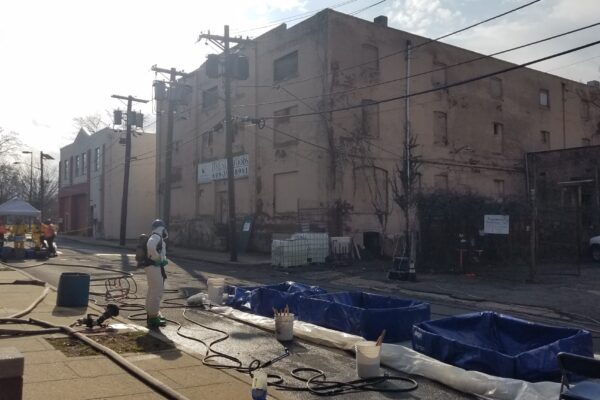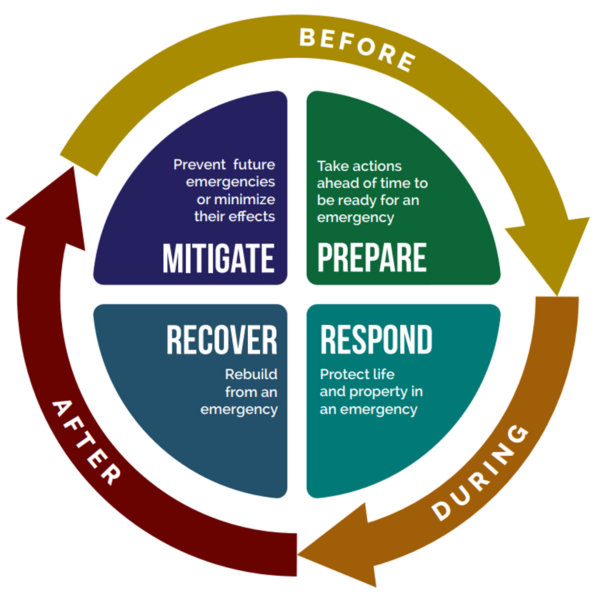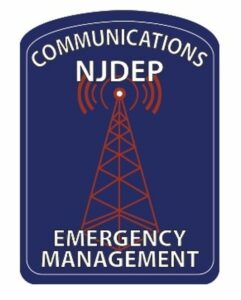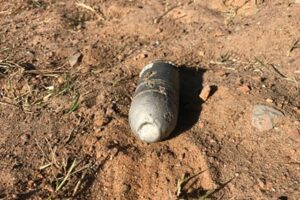Emergency Management Program
The role of the Emergency Management Program is to effectively plan, prepare, respond, recover and mitigate all hazards that affect the public health of NJ Citizens and the environment through the implementation of NJDEP’s responsibilities outlined in the Emergency Operations Plan of the State of New Jersey and the continued performance of ongoing duties of the Program. The Emergency Management Program operates 24 hours a day, 7 days a week supporting the network of DEP responders and coordinating with federal, state, county and local stakeholders.
Several groups make up the Emergency Management Program, listed below:
Bureau of Emergency Response
The NJDEP has the responsibility of responding to emergencies involving a wide variety of hazards that threaten the public, environment and infrastructure of the state. Past responses to emergencies primarily focused on oil and hazardous material, but, today, the NJDEP’s mandate includes a much broader spectrum of threats including:
- Natural disasters
- Pathogenic outbreaks
- Terrorism
- Hazardous materials
In response to this mandate, NJDEP maintains the Bureau of Emergency Response (BER). The Bureau, headquartered in Trenton, supports two field offices strategically located for rapid response on a 24-hour basis, 7 days a week.
At the site of an incident, the emergency responder’s mission is to assess the probable impact on public health and the environment, and advise local officials on the appropriate course of remediation while ensuring that NJDEP Technical Requirements for Site Remediation are met. In those cases where the responsible party is unknown, or cannot or will not assume responsibility for the discharge, emergency responders may access the New Jersey Spill Compensation Fund to ensure that corrective actions are not delayed.
BER also acts as the state’s on scene coordinator when incidents involve multiple jurisdictions, agencies and disciplines. New Jersey’s unique nexus of ecological diversity, population and industry present a unique challenge for the responders of BER. BER’s emergency responders work closely with our federal, state, county and local partners through a variety of established interagency programs, organizations and agreements. This cooperation facilitates the department’s preparedness to respond to all hazards that present a threat to the state.
Planning Unit
The Planning Unit within BER works to coordinate effective department and cross-department preparedness, response, recovery and mitigation activities. The unit is responsible for the following tasks:
- Emergency planning and training
- Liaison services to State emergency management groups on behalf of NJDEP
- Staffing of the State Emergency Operations Center (SEOC)
- Staffing of the DEP Emergency Operations Center (DEP EOC)
- Staffing of the FEMA Joint Field Office (JFO)
- Deployment and reimbursement of NJDEP assets to assist other states with their disaster response and recovery in association with FEMA and Emergency Management Assistance Compact (EMAC)


Bureau of Communications and Response Services
The NJDEP Communication Center serves the entire Department as a vital link with the community through the Environmental Action Hotline, (877) WARN DEP. Operators at the Communication Center receive incident notifications and generate reports related to:
- Chemical releases
- Environmental emergencies
- Wildlife issues
- Forest fires
- Industrial accidents
- Illegal hunting and fishing
- Terrorist threats
After collecting and recording this critical information, the Communications Center transmits it to the appropriate NJDEP programs and offices to respond appropriately.
The Communication Center also maintains and uses a state-of-the-art radio system that allows prompt, reliable, interoperable, and secure communication with all first responders throughout New Jersey. The radio system and the computer aided dispatch are used to coordinate NJDEP’s statewide law enforcement officers, which are dispatched to all manner of emergencies.
In addition, the Center’s communication operators are trained to provide NJDEP law enforcement with information from State and Federal computer systems to provide motor vehicle inquires as well as wants and warrants to protect our patrons.

Environmental Equipment Service Center
The Environmental Equipment Service Center (EESC), is situated to provide logistical and materials support to NJDEP professional field staff. The EESC carries a vast array of equipment, including:
- Field sampling equipment
- Scientific instruments
- Environmental spill response supplies
- Personal protective equipment and safety gear
These items are available for rapid deployment to NJDEP staff and, through interagency arrangements, to other State, County and Local entities. This cooperative effort enhances NJDEP’s ability to ensure adequate materials are available to our partners during routine and emergency operations. During emergency operations, the facility may be staffed nights and weekends.


Munitions and Explosives of Concern / Unexploded Ordnance
The Emergency Management Program is NJDEP’s point of contact for all sites within the state that contain munitions and explosives of concern (MEC) and unexploded ordnance (UXO). New Jersey has a vast history of military activities, including bomb making and testing on US Military sites. Many of these sites still contain MEC and UXO.
Under U.S. Army Corps of Engineers’ Military Munitions Response Program (MMRP), Emergency Management oversees and provides technical assistance and guidance regarding the removal action and remediation of MEC/UXO at all of New Jersey’s current military installations and formerly used defense sites (FUDS). Additionally, Emergency Management provides technical assistance and guidance to other programs within the NJDEP where explosive hazards may be a concern.


Other Helpful Links
- NJ Office of Emergency Management
- NJ Office of Homeland Security and Preparedness
- NJ State Emergency Response Commission (SERC)
- Federal Emergency Management Agency
- NJ Emergency Management Grants
- NJ 211
- Ready.gov | DHS
- Cybersecurity & Infrastructure Security Agency
- Critical Infrastructure Sectors | CISA
- National Weather Service | NOAA
- National Hurricane Center | NOAA
- Drought.gov | NOAA





